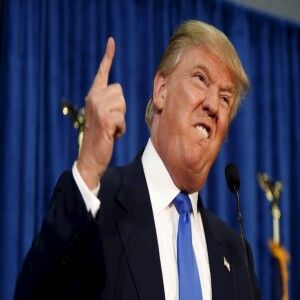Episodes

Thursday Nov 14, 2024
Thursday Nov 14, 2024

On this edition of Parallax Views, we continue our post-mortem of the 2024 election with two separate and distinguished guests. In the first segment, Stephen Semler of the date-based political blog Polygraph joins the show to discuss his articles "A couple charts to explain a Harris loss" and the facetiously titled "'The economy is fine'". Stephen delves into how the economy played a role in this election, and addresses criticisms by some pundits that economic anxieties could not have played a role in the election because the economy is doing well by some metrics and statistics (for example: low unemployment, a booming stock market, etc.). We'll delve into the difference between the economy and average American's economic well-being, and we'll look at two graphs from the U.S. Department of Agriculture and the U.S. Census Bureau that deal with food insecurity and poverty to further elucidate Stephen's analysis. We'll also delve into Biden's Build Back Better and American Rescue Plans and how certain elements of Bidenomics in spring of 2022 got sidelined in a way that may have led to economic whiplash for American voters.
In the second segment of the show, Daniel Bessner, known for his work at the Quincy Institute and Jacobin as well as co-hosting the left-leaning foreign policy/international relations podcast American Prestige, returns to the program to give his own analysis of the 2024 election's outcome and what he expects from a 2nd Trump Presidency. We'll discuss the feeling that there's been a more muted response to this election that in 2016, the question of Trump and fascism and why Danny prefers to discuss Trump as a reactionary populist with authoritarian inclinations, Trump as a PT Barnum-esque carny barker character mixed with shades of Boss Tweed and Tammany Hall, Trump and his promises of mass deportation, what Trump means for climate change, populism and anti-establishment backlash in the 2024 election, what Danny expects out of Trump's foreign policy (with regards to Ukraine and Russia, China, Iran, and Israel/Palestine), and, most significantly, the crisis of liberalism. In regard to the crisis of liberalism we'll mention Francis Fukuyama's "End of History" hypothesis, the decline of civic institutions since the 1960s (and maybe even before), Clinton-era liberalism (colored by the primacy of Third Way neoliberalism in the Democratic Party) vs. FDR's New Deal liberalism, the liberal international order and great power politics, and much, much more.


No comments yet. Be the first to say something!